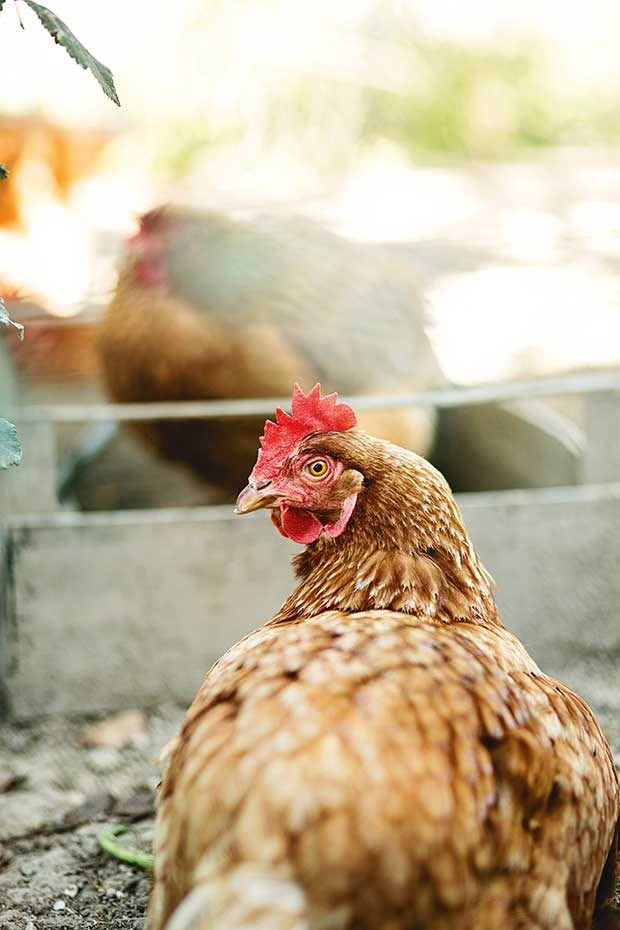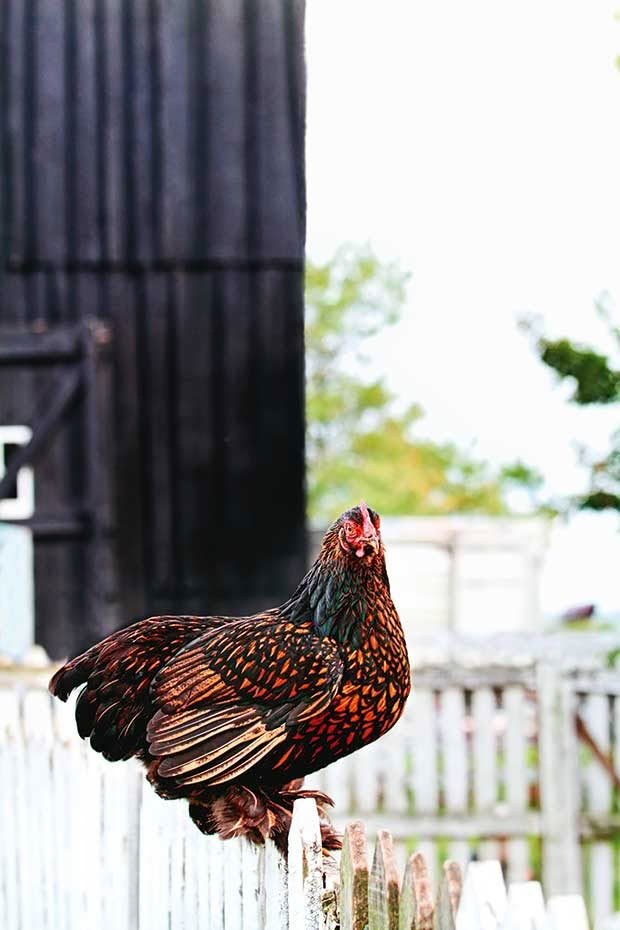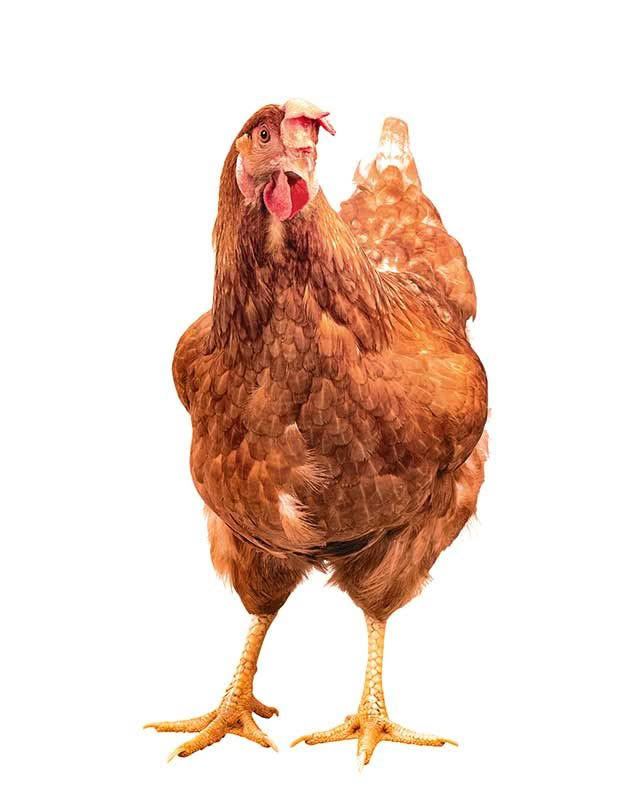How to keep your chicken flock healthy (and what to stock in a poultry first aid kit)

The most effective methods for keeping poultry healthy are all about prevention.
Words: Nadene Hall
There are a few simple steps any poultry owner can take to keep their poultry healthy.
1. Quarantine any new birds to your property. Keep them separate for 14 days. Worm them
as soon as they arrive, watch for signs of illness, and understand they may get sick due to a lack of immunity to diseases on your block that weren’t present at their old home.
2. Give them 24-7 access to a good, quality, balanced feed. Many health issues, especially poor egg production, begin with nutrition.
3. Minimise contamination to feed from rodents and wild birds, which carry and transmit diseases, and also eat a huge amount of feed.
The most common cause of health issues in poultry are parasites. Externally, there can be mites, lice and fleas on or just under the skin. Internally, there is coccidiosis (chicks are at most risk), roundworms, caecal worms, threadworms, and gape worm.

Older birds and heavier breeds tend to have better immunity to internal parasites. Younger birds and any that are compromised (eg, by illness) will have lower immunity. All of them will need occasional treatment for mites and lice.
Symptoms of parasites include: pale skin around the face, pale combs and wattles, weight loss/very thin, listlessness, slow growth, diarrhoea, death.
If you have one bird with a worm or mite problem, treat all of them, then treat them again 7-10 days later. Weigh birds to get an accurate dose rate. If using ivermectin (see below), your vet clinic can supply small syringes with 0.1ml increments to help you dose correctly.
WHAT SHOULD BE IN YOUR POULTRY FIRST AID BOX
Some illnesses will always require a vet’s assistance, but there are basic things that can help a sick chicken:
– warmth
– isolation
– protein/fat-rich food (eg, cat jelly meat, dog roll) plus a quality poultry feed and water
– electrolytes/vitamins in water
Coccidiostat
You may be feeding a medicated starter food (most starter feeds are) to chicks, but sometimes an infection can go beyond its control. Effective medications to help chicks include Coxiprol (available online) and Baycox (vet only).

Vitamin supplement
An avian vitamin mix such as Stressol.
Electrolytes
Poly Aid, Spark Liquid, (available online)or you can use human or pig electrolyte mixes.
Glucose powder
Good to add to water for weak chicks or birds, especially ones that are not eating.
Petroleum jelly or vegetable oil
For smothering scaly leg mite which burrow under the skin.
A mild disinfectant
An iodine spray for farm animals, to clean a wound.
Vicks Vaporub
To dab on top of the beak (not in the nostril) to help with congestion, also good for putting around (not on) wounds to stop feather pecking by other birds.
Insecticide treatment
For treating mites and lice.
Wormer
Aviverm (for large birds), and also an ivermectin pour-on for cattle (off-label) – use 0.1ml per 1kg of bodyweight, for application on the skin only (under the wing is best).
Note: this is an off-label use of ivermectin, it does not treat tapeworm, eggs should not be eaten (by you or your pets) for 14 days afterwards, do not feed this to your bird or use an oral ivermectin product in place of it, talk to your vet if you are unsure.
MORE HERE:
Is your chicken gasping for air? It could mean it has gapeworms
Love this story? Subscribe now!
 This article first appeared in NZ Lifestyle Block Magazine.
This article first appeared in NZ Lifestyle Block Magazine.
